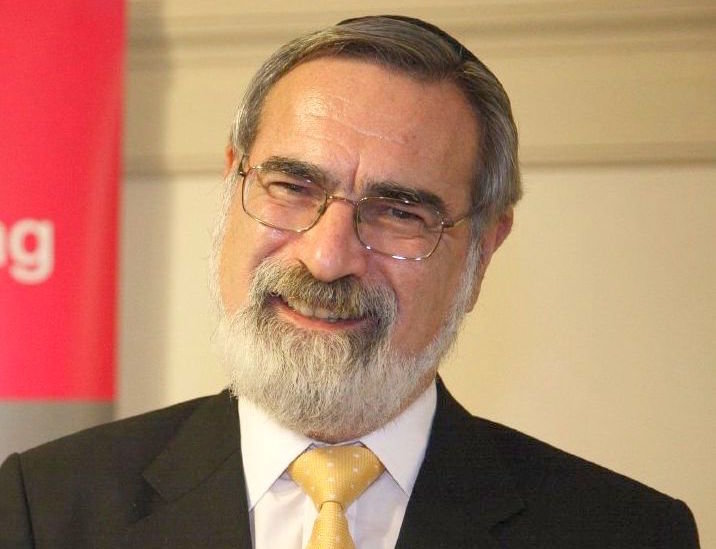Rabbi Jonathan Sacks
196 results total, viewing 1 - 10
|
The Sages understood tsara’at , the theme of this week’s parsha, Metzora, not as an illness but as a miraculous public exposure of the sin of lashon hara , speaking badly about people.
…
more
By Rabbi Sir Jonathan Sacks zt"l
|
4/17/24
|
|
I t was the Septuagint, the early Greek translation of the Hebrew Bible, that translated tsara’at, the condition whose identification and cleansing occupies much of Tazria and Metzora as …
more
By Rabbi Sir Jonathan Sacks zt"l
|
4/10/24
|
|
Shemini tells the tragic story of how the great inauguration of the Tabernacle, a day about which the Sages said that G-d rejoiced as much as He had at the creation of the universe, was overshadowed …
more
By Rabbi Sir Jonathan Sacks zt"l
|
4/3/24
|
|
In “The Watchman’s Rattle,” subtitled “Think- ing Our Way Out of Extinction,” Rebecca Costa delivers a fascinating account of how civilizations die. When their problems …
more
By Rabbi Sir Jonathan Sacks z"tl
|
3/27/24
|
|
O ur parsha, Vayikra, which deals with a variety of sacrifices, devotes an extended section to the chattat , the sin offering, as brought by different individuals: first the High Priest (Ex. 4:3-12), …
more
By Rabbi Sir Jonathan Sacks z"l
|
3/20/24
|
|
Pekudei has sometimes been called “The Accountant’s Parsha,” because that is how it begins, with the audited accounts of the money and materials donated to the Sanctuary. It is the …
more
By Rabbi Sir Jonathan Sacks zt"l
|
3/13/24
|
|
Melanie Reid, a journalist with The Times of London, is a quadriplegic who, with a wry lack of self-pity, calls her weekly essay Spinal Column. She told how she, her husband, and others in their …
more
By Rabbi Sir Jonathan Sacks zt"l
|
3/6/24
|
|
One of the most important Jewish contributions to our understanding of leadership is its early insistence of what, in the eighteenth century, Montesquieu called “the separation of …
more
By Rabbi Sir Jonathan Sacks zt"l
|
2/21/24
|
|
As soon as we read the opening lines of Terumah we begin the massive shift from the intense drama of the Exodus with its signs and wonders and epic events, to the long, detailed narrative of how the …
more
By Rabbi Sir Jonathan Sacks zt"l
|
2/14/24
|
|
First in Yitro there were the Aseret Hadibrot, the “Ten Utterances,” the Ten Commandments, expressed as general principles. Now in Mishpatim come the details. Here is how they begin:
…
more
Rabbi Sir Jonathan Sacks zt”l
|
2/7/24
|

 49.0°,
Fair
49.0°,
Fair 
